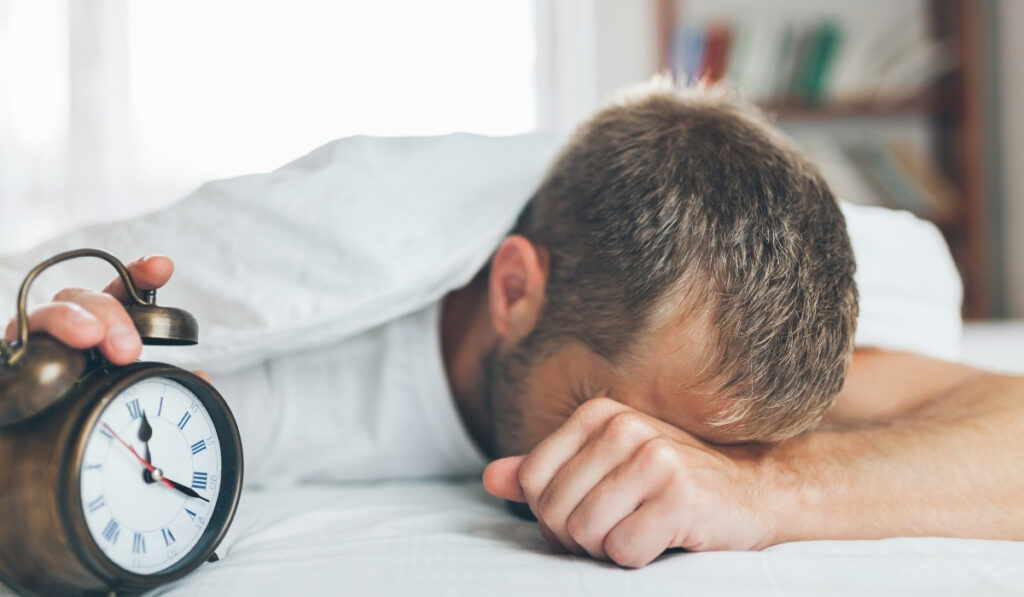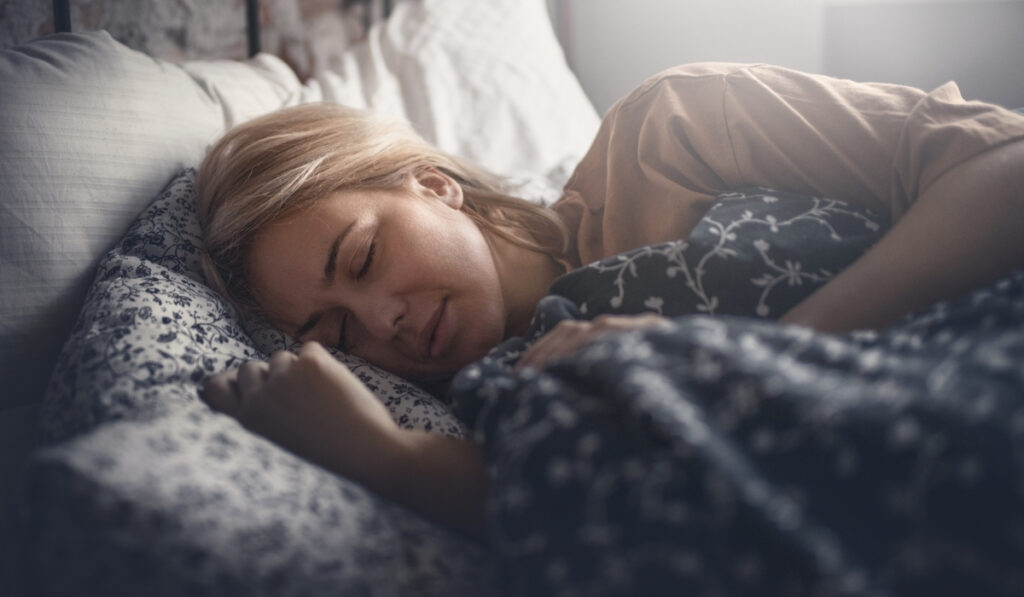Are you feeling tired all day? Have you considered the fact that you might not be sleeping enough? According to a study, more than 51% of adults do not get enough sleep. When you are managing work, household chores, trying to stay fit by hitting the gym, you are pulled in a thousand directions, and therefore, sleep becomes a luxury that not everyone can afford.
The decreasing rate of sleep hours from 8 hours on average to 6.8 is alarming since the recommended duration of sleep hours for adults is 7-9 hours a night.
What are the signs and symptoms of Sleep Deprivation?
Our body has a feedback mechanism, and it keeps alarming us if it doesn’t get the required rest to work properly. Some of the common signs and symptoms observed in case of sleep deprivation are mentioned below,
1. Fatigue – without proper rest, our body feels tired, low energy, and a constant desire to go back to sleep. Fatigue can interfere with our daily activities and can harm our health as well.
2. Irritability – when you haven’t slept properly, you feel incredibly irritable throughout the day or for prolonged time spending. Though many things can cause irritability but most commonly observed reason is lack of sleep.
3. Difficulty in focusing – for the proper functioning of the brain and body, it needs normal hormone levels, which are disturbed if the body doesn’t get the required amount of rest. Your sleep habits can highly influence how you feel throughout the day, and therefore, it is necessary to get a good night sleep for staying pro-active.
4. Poor Memory – sleep and memory are interlinked. Without proper rest, you might not be able to focus correctly and can’t learn efficiently. Also, sleep is essential for memory to stick to your subconscious mind, which can be recalled later.
Falling asleep takes, on average, 10-15 minutes. If you pass out within a few minutes, it might mean you are sleep deprived.
Stages of Sleep Deprivation.
The symptoms of sleep deprivation get worse with time if the individual doesn’t get the required amount of sleep. These symptoms have been categorized into five stages, according to the hours of sleep you miss.
Stage 1 – if you miss sleep for 24-hours, your body won’t suffer from significant health issues. Some of the observed symptoms for lack of sleep for 24 hours are,
1. Irritability and drowsiness
2. Brain fog and confusion
3. Puffiness in eyes
4. Lack of concentration
5. Headache
Stage 2 – if you don’t sleep for 36 hours straight, the symptoms worsen, and you will start falling asleep even for brief moments, even without noticing. Some of the symptoms observed in this stage are,
1. Behavioural changes
2. Difficulty in coordination
3. Impaired memory
4. Extreme fatigue
Stage 3 – after 48 hours of sleep deprivation, hallucination might occur along with other symptoms like,
1. Increased anxiety
2. Increased irritability
3.High levels of stress
Stage 4 – after 72 hours or three days without sleep, the urge to sleep increases multifold. You might start to doze off more frequently. The incidents of and intensity of hallucination increases, and you might also observe symptoms like,
1. Disordered thinking
2. Illusions
3. Depersonalization
Stage 5 – when you haven’t slept for 96 hours or more, your mind will not function normally. It will become challenging for the brain to differentiate between hallucinations and reality. This stage is referred to as sleep deprivation psychosis and can be treated with proper sleep.
What are the causes of sleep deprivation?
There can be many reasons for sleep deprivation, such as hectic work schedules to health ailments. The impact of these problems can have a varying effect on sleep patterns. Some of the reasons for sleep deprivations are mentioned below,
1. Depression and stress
2. Work deadlines
3. Diabetes and other chronic health conditions
4. Uncomfortable bed
5. External factors like noise, bright light, or weather conditions.

What is the impact of sleep deprivation?
1. Troubled thinking and lack of concentration- without proper sleep, the functioning of the brain is impacted. The brain gets fogged, and you find it challenging to interpret things, concentrate or be creative with your thinking.
2. Weak immunity – lack of sleep can weaken your immune system. When the immune system is weak, our body becomes vulnerable to harmful pathogens.
3. Weight gain – without proper sleep, the chemicals or signals that tell our body that our stomach is full are disrupted. This interference can make us overeat and, thus, gain weight. Lack of sleep can make you feel too tired to exercise. With reduced physical activity, you can gain weight because you don’t burn enough calories. 3-5% of obesity in adults could be caused by lack of sleep. – Harvard | school of public health.
4. Regular sleep is necessary to protect the heart from various cardiovascular disorders and maintains the power of the body to regenerate and rebuild the blood vessels and the heart.
5. Sleep deprivation also affects your skin condition, such as ageing skin, acne breakout, puffy eyes, thin lines, and dark circles around the eyes.
6. Poor mind-body coordination – without proper sleep, the coordination between the brain and the body gets disturbed. Under such circumstances, you are more likely to get yourself hurt.
What is the treatment for sleep deprivation?
The best treatment for sleep deprivation is to get an adequate amount of sleep to get back on track. This can be difficult for people suffering from health ailments or chronic disorders and therefore require help to fall asleep.
Some of the treatments for better sleep are mentioned below,
1. Cognitive behaviour therapy is a psychotherapy that helps people understand the reasons behind their feelings and emotions. This is a beneficial technique in understanding and modifying people who struggle with issues of depression, anxiety, or sleep disorders.
2. Taking professional help from doctors who provide prescribed medication that will help you relax and fall asleep. People suffering from chronic diseases are often asked to take a sleeping pill with their regular medication to ease the pain and fall sleep comfortably.
How to prevent sleep deprivation?
Prevention is better than cure! Some of the healthy tips that can help you maintain a healthy sleep cycle are mentioned below.
1. Try to maintain a sleeping schedule and stick to it as much as possible. You must sleep 7-9 hours each day. If you find yourself not being able to sleep properly for successive days because of work deadlines or other chores, take a break and relax and try to get proper sleep. With adequate sleep, you will be able to focus clearly and be more productive in your work.
2. Eat healthy food- your diet can also influence your sleeping pattern. By eating sleep-inducing food, there are chances that your sleep will also get better. Some of these food products include yoghurt, kale, bananas, honey, nuts, and white rice.
3. Exercising- this includes both physical and mental exercises. Practising meditation can help ease stress and make them calm. Meditation can enhance concentration, mindfulness, alleviate stress, and reduce anxiety stress.
4. Having healthy bed-habits – try not taking food to your bed or watch television from the bed. Keep your bed as a place to sleep and find comfort. By watching Television or doing work from bed, it gets associated with wakefulness, and thus, it makes it difficult to sleep.
5. Block all kinds of disturbances, such as bright light or loud noises. Most people find it difficult to sleep because of such factors. By blocking such aspects, one can sleep peacefully without getting disturbed.
Conclusion
Sleep is essential for the overall health of the body. Skipping proper sleep once in a while won’t have a dreadful impact, but continuous incidents can become a habit, and you will find it difficult to get anything done because your body is not well-rested. If you find yourself not well-rested, take a break and relax. If home remedies are not helping, then you must seek professional help. Learn to be kind to yourself and stay healthy.





